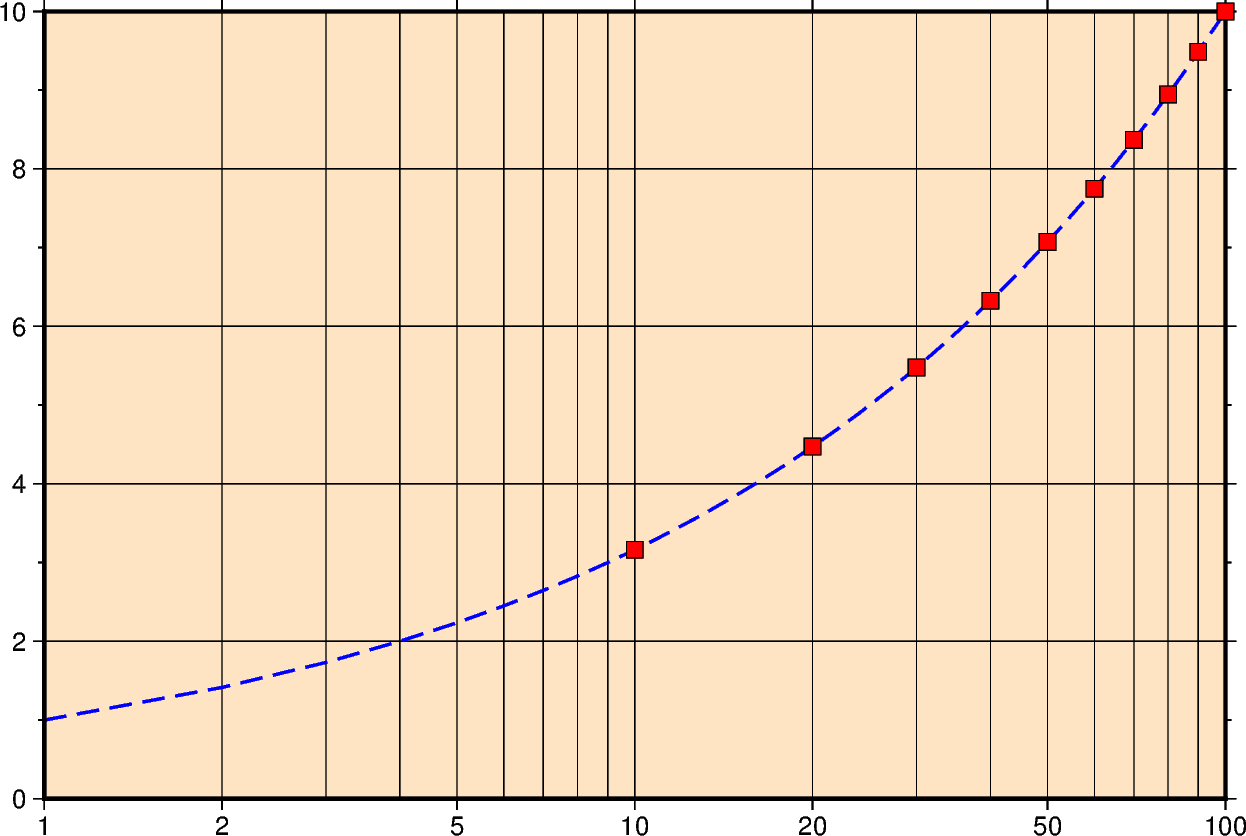Note
Go to the end to download the full example code.
Cartesian logarithmic
Xwidth[l][/height[l]] or xx-scale[l][/y-scale[l]]
Give the width of the plot and the optional height. The lowercase version x is similar to X but expects an x-scale and an optional y-scale. Each axis with a logarithmic transformation requires an l after its size argument.

import numpy as np
import pygmt
# Create a list of x-values 0-100
xline = np.arange(0, 101)
# Create a list of y-values that are the square root of the x-values
yline = xline**0.5
# Create a list of x-values for every 10 in 0-100
xpoints = np.arange(0, 101, 10)
# Create a list of y-values that are the square root of the x-values
ypoints = xpoints**0.5
fig = pygmt.Figure()
fig.basemap(
region=[1, 100, 0, 10],
# Set a logarithmic transformation on the x-axis
projection="X15cl/10c",
# Set the figure's frame and color as well as annotations, ticks, and gridlines
frame=["WSne+gbisque", "xa2g3", "ya2f1g2"],
)
# Set the line thickness to "2p", the color to "black", and the style to "dashed"
fig.plot(x=xline, y=yline, pen="2p,black,dashed")
# Plot the square root values on top of the line
# Use squares with a size of 0.3 centimeters, an "orange" fill and a "black" outline
# Symbols are not clipped if they go off the figure
fig.plot(x=xpoints, y=ypoints, style="s0.3c", fill="orange", pen="black", no_clip=True)
fig.show()
Total running time of the script: (0 minutes 0.154 seconds)